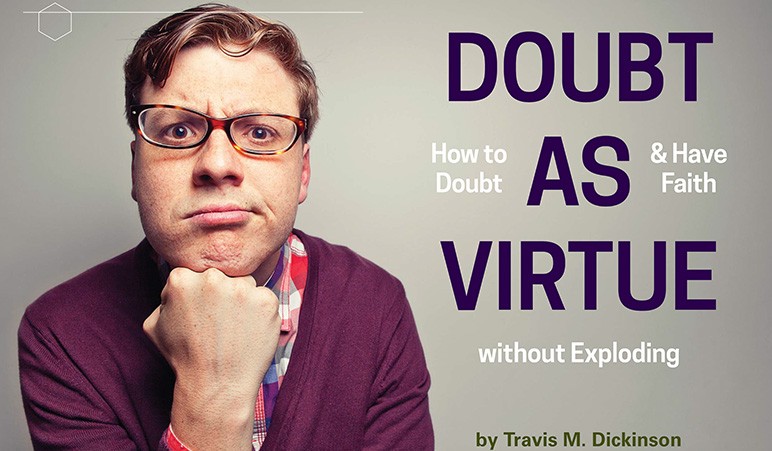An experience of intellectual doubt is often taken by Christians to be a sign of weak faith. I argue, however, that an encounter with doubt, when treated properly, is extremely valuable, since it can lead to knowledge and an even greater faith. To see this, it’s important to understand the nature of doubt. Intellectual doubt should be defined as finding plausible what we take to be a potentially defeating claim. This definition provides insights for how to evaluate one’s doubts. My claim is that it is completely rational to maintain our Christian faith while experiencing doubt. This allows us to in turn evaluate the reasonableness of our doubt. Evidence matters with intellectual doubt, since a doubt requires outweighing evidence to defeat a belief effectively. Merely to find an objection plausible is not for there to be a preponderance of evidence in its favor. The upshot of all this is that, by addressing our doubts, we are forced to think more carefully about our faith (i.e., we have greater knowledge) and, in the case that a doubt is diffused, we have more reason to trust (i.e., we have an even greater faith).
This Postmodern Realities episode is a conversation with Journal author Travis M. Dickinson about his 39:04 article “Doubt as Virtue: How to Doubt and Have Faith without Exploding“.
We’d also like to invite you to subscribe to the Journal. To subscribe to the Journal, please click here.
When you to subscribe to the Journal, you join the team of print subscribers whose paid subscriptions help provide the resources at equip.org that minister to people worldwide. These resources include our free online-exclusive articles, such as this review, as well as our free Postmodern Realities podcast.
Another way you can support keeping our resources free is by leaving us a tip. A tip is just a small amount, like $3 or $5, which is the cost for some of a latte, lunch out, or coffee drink. To leave a tip, click here.
Other articles and Postmodern Realities podcasts related
Episode 133 The Disorientation of Deconversion
Am I Just Not Chosen? The Disorientation of Deconversion
When Religious Doubt Grows Agonizing
Episode 081: Why People Stop Believing
Episode 127 Addressing the Emotional Problem of Evil
Addressing the Emotional Problem of Evil: Why Christians Hope
Doubt as Virtue: How to Doubt and Have Faith without Exploding
Episode 019: Doubt as Virtue: How to Doubt and Have Faith without Exploding
Episode 049: “That ‘Nones’ May Not Perish”
